Latest News
 Columnist Bill Newman: Laurels and the laureate
Columnist Bill Newman: Laurels and the laureate
 Four-way race shapes up for Granby Select Board
Four-way race shapes up for Granby Select Board
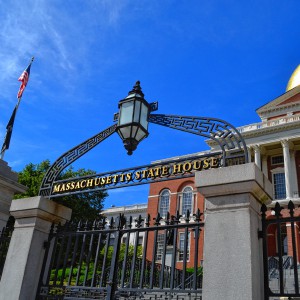 Beacon Hill Roll Call, April 29-May 3
Beacon Hill Roll Call, April 29-May 3

Northampton school budget: Tensions high awaiting mayor’s move
NORTHAMPTON — As the deadline for Mayor Gina-Louise Sciarra to a submit a budget proposal for the city draws near, an entrenched battle over the city’s public school budget is coming to a head.The Northampton School Committee defied the mayor’s...

A rocky ride on Easthampton’s Union Street: Businesses struggling with overhaul look forward to end result
EASTHAMPTON — Outside of Small Oven bakery on Union Street, customers walk carefully around puddles, leaving footprints in the muddy strip where the sidewalk had been just days before. Inside, a line still forms at the register, but according to owner...
Most Read
 More than 130 arrested at pro-Palestinian protest at UMass
More than 130 arrested at pro-Palestinian protest at UMass
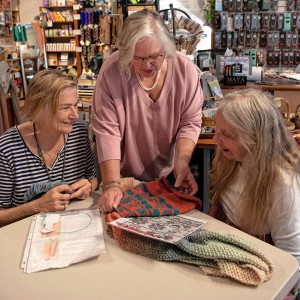 ‘Knitting treasure’ of the Valley: Northampton Wools owner spreads passion for ancient pastime
‘Knitting treasure’ of the Valley: Northampton Wools owner spreads passion for ancient pastime
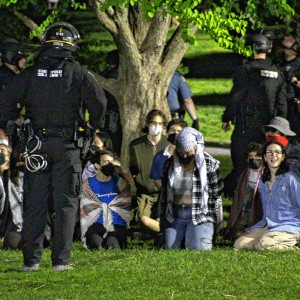 UMass student group declares no confidence in chancellor
UMass student group declares no confidence in chancellor
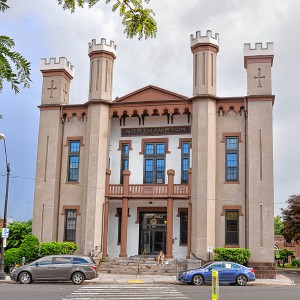 Guest columnist Josh Silver: Northampton school budget — Let’s start with kindness, accuracy and respect
Guest columnist Josh Silver: Northampton school budget — Let’s start with kindness, accuracy and respect
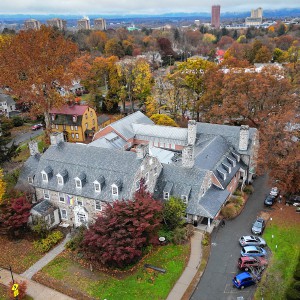 With Jones project in question, Amherst won’t sign lease for temporary digs
With Jones project in question, Amherst won’t sign lease for temporary digs
 UMass graduation speaker Colson Whitehead pulls out over quashed campus protest
UMass graduation speaker Colson Whitehead pulls out over quashed campus protest
Editors Picks
 A Look Back, May 10
A Look Back, May 10
 A lot of imagination: Hopkins seniors bring art to parking lot spots
A lot of imagination: Hopkins seniors bring art to parking lot spots
 Connected through art: Rocky Hill Cohousing community participates in art exchange with group from Australia
Connected through art: Rocky Hill Cohousing community participates in art exchange with group from Australia
 Arts Briefs: Dance festival and a one-woman play in Northampton, summer music fests in Easthampton, and more
Arts Briefs: Dance festival and a one-woman play in Northampton, summer music fests in Easthampton, and more
Sports

Northampton’s lacrosse mom: Melissa Power-Greene supporting Blue Devils on and off the field
Melissa Power-Greene is surrounded by Northampton girls lacrosse. Her eldest daughter Kyla Power is the varsity coach, her husband Ousmane Power-Greene is the JV coach, and her youngest daughter Imanni Power-Greene is a sophomore star attack.Normally,...
 Softball: Cassie Dion records 200th career strikeout as Hopkins Academy blanks Granby 6-0
Softball: Cassie Dion records 200th career strikeout as Hopkins Academy blanks Granby 6-0
 Boys volleyball: Granby cruises to 3-0 sweep over Athol (PHOTOS)
Boys volleyball: Granby cruises to 3-0 sweep over Athol (PHOTOS)
Opinion

Rebecca Lee: Counter corporate capture
In Olin Rose-Bardawil’s column “Corporate capture a grave threat to citizens” [Gazette, April 11], he argues that corporate involvement in agencies is determining federal regulations, which results in increased profits for industries, leaving people...
 Jim Reis: Northampton school budget — What went wrong?
Jim Reis: Northampton school budget — What went wrong?
 Columnist Olin Rose-Bardawil: American dream out of reach for many
Columnist Olin Rose-Bardawil: American dream out of reach for many
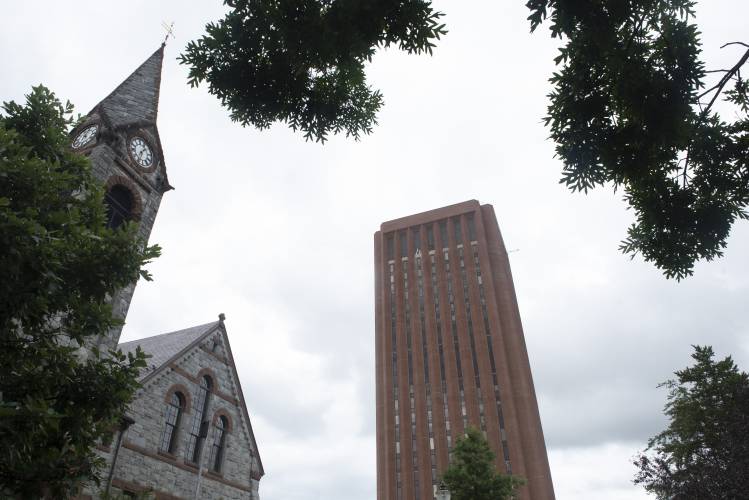 Martha Jorz: Stop supporting UMass and Raytheon
Martha Jorz: Stop supporting UMass and Raytheon
 Tony Giardina: Faith and inclusion
Tony Giardina: Faith and inclusion

Business

Area property deed transfers, May 2
AMHERST Faheem Ibrahim Lt and Faheem Ibrahim to Nan Zhao and Zhihong Ni, 16 Arbor Way, $738,000 Richard B. Spurgin to Yg Pleasant LLC, East Pleasant Street, Lot 1, $218,000 Richard B. Spurgin to Yg Pleasant LLC, East Pleasant Street, Lot 2,...
Arts & Life

Valley Bounty: Fibers for farmers: Western Massachusetts Fibershed turns local ‘throw away’ wool into fertilizer pellets
Local wool for your wardrobe … and for your garden?That’s the idea behind a new project from Western Massachusetts Fibershed, an organization working to strengthen our local fiber economy, right alongside our local food economy.Peggy Hart is a core...
Obituaries
 Eli Knapp Abrams
Eli Knapp Abrams
Florence, MA - Eli Knapp Abrams, of Florence Massachusetts, passed away suddenly on Monday, April 22nd, 2024 in Goshen, MA. Eli was born in Beverly, MA on March 19th, 2003. He is the cherished son of Jennifer and Maury Abrams, and belov... remainder of obit for Eli Knapp Abrams
 Jennifer M. Read
Jennifer M. Read
South Deerfield, MA - Jennifer Read of South Deerfield, beloved wife and mother, died peacefully on April 21, 2024 at the age of 79 after a long struggle with Alzheimer's disease. Jennifer was born on January 1, 1945 at Brooklyn Naval ... remainder of obit for Jennifer M. Read
 Ana M. Kleiner
Ana M. Kleiner
Hadley, MA - It is with heavy hearts that we announce the passing of Mia Kleiner, born Ana Maria Hodgkins, in Hadley, MA, on April 28, 2024. Born in Springfield on January 19, 1961, Mia grew up in Pelham and Amherst, MA, and attende... remainder of obit for Ana M. Kleiner
 Linda Andersen
Linda Andersen
Northampton, MA - Linda Louise Andersen,74, passed away at Cooley Dickinson Hospital on May 1, 2024 surrounded by her family. Born to Myron and Esther (Lyons) Andersen on June 4, 1949 in Northampton, MA. She graduated from St Michaels ... remainder of obit for Linda Andersen

 ‘None of us deserved this’: Community members arrested at UMass Gaza protest critical of crackdown
‘None of us deserved this’: Community members arrested at UMass Gaza protest critical of crackdown
 Guest columnist David Narkewicz: Fiscal Stability Plan beats school budget overreach
Guest columnist David Narkewicz: Fiscal Stability Plan beats school budget overreach
 Two-part Town Meeting in Granby begins Monday night
Two-part Town Meeting in Granby begins Monday night
 Belchertown voters to consider $61.6M budget at Monday’s annual Town Meeting that lays off 14 school staff
Belchertown voters to consider $61.6M budget at Monday’s annual Town Meeting that lays off 14 school staff
 Dreams take flight (some assembly required): Local pilots build and help build their own aircraft
Dreams take flight (some assembly required): Local pilots build and help build their own aircraft
 South County Senior Center opts not to renew church lease after rift over LGBTQ program
South County Senior Center opts not to renew church lease after rift over LGBTQ program
 Mother's Day extra special for Northampton girls soccer coach Vanessa Butynski
Mother's Day extra special for Northampton girls soccer coach Vanessa Butynski South Hadley baseball gets past Hampshire Regional in Hartford: ‘it’s almost like the big leagues’ (PHOTOS)
South Hadley baseball gets past Hampshire Regional in Hartford: ‘it’s almost like the big leagues’ (PHOTOS)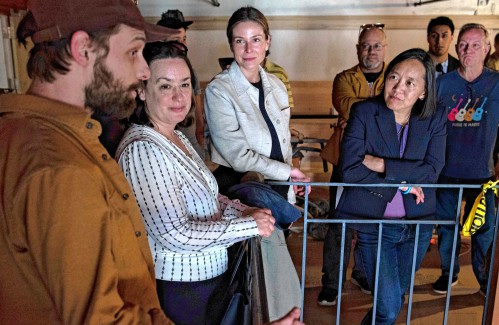 Music key to Northampton’s downtown revival: State’s top economic development leader tours city
Music key to Northampton’s downtown revival: State’s top economic development leader tours city  Locking up carbon for good: Easthampton inventor’s CO2 removal system turns biomass into biochar
Locking up carbon for good: Easthampton inventor’s CO2 removal system turns biomass into biochar Advancing water treatment: UMass startup Elateq Inc. wins state grant to deploy new technology
Advancing water treatment: UMass startup Elateq Inc. wins state grant to deploy new technology New Realtor Association CEO looks to work collaboratively to maximize housing options
New Realtor Association CEO looks to work collaboratively to maximize housing options Get Growing with Mickey Rathbun: Venture beyond your garden walls: Plant sales and noteworthy gardens to visit this season
Get Growing with Mickey Rathbun: Venture beyond your garden walls: Plant sales and noteworthy gardens to visit this season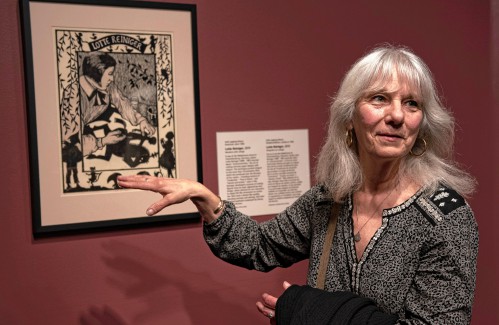 Overlooked no more: Leverett artist’s woodcut prints celebrate remarkable women of the past
Overlooked no more: Leverett artist’s woodcut prints celebrate remarkable women of the past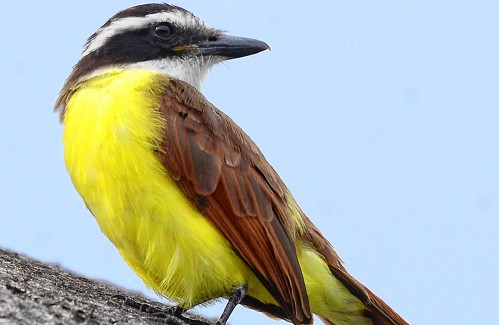 Speaking of Nature: Capturing my Bermuda nemesis: The Great Kiskadee nearly evaded me, until I followed its song
Speaking of Nature: Capturing my Bermuda nemesis: The Great Kiskadee nearly evaded me, until I followed its song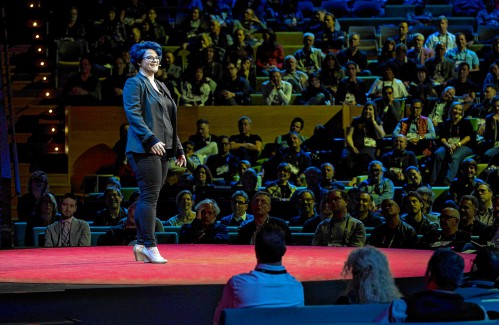 Easthampton author Emily Nagoski has done the research: It’s OK to love your body
Easthampton author Emily Nagoski has done the research: It’s OK to love your body
